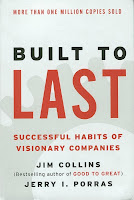Issue 240, September 2013
Hi guys,
What happens when our workplace happiness is eroded? Check out The Psychological Contract, and what we can do to repair it, below. Don't forget, if you want to be taken off my mailing list, click here to send me a reply e-mail and I will remove your name.
| The Psychological Contract |
OK. So who has heard of the psychological contract?
What I mean by psychological contract is our informal emotional connection with our work: those reciprocal obligations & commitments that help us to define our employee and organisational relationships. Our psychological contract is an emotional bond that binds us to our organisations in a healthy way. This bond helps us sustains our employment relationship over time.
A good psychological contract will mean we see a balance between our effort & what the organisation returns to us; in our eyes. This is an exchange relationship, based on our own perception (so our employer may not agree with our view). It is also unusual in that it is our own power in the workplace: the psychological contract is driven by us, as the employee.
Now, like so many other things in our working environments, you can't see, touch or taste the psychological contract. It is implicit and covert; it is intangible. Because of its very nature, unless you are aware of its existence, it can be easily damaged. Small things can erode it, like allowing people to operate using unsafe practices ("they don't care about us here").
It is also very informal. It counterbalances the formal - and legal - Individual Employment Agreement (IEA or employment contract). Where the IEA is written, if we actually worked on a clause by clause basis, you could see that our working relationships would very quickly disintegrate. Relying solely on our legal obligations would not create healthy or trusting relationships in the workplace.
The psychological contract in some ways is the individual compadré of the collective organisational culture. They both have similar intangible aspects, and are both essential for good environments. Ignore both at your peril!
Over time, our psychological contract gets a bit battered through the wear and tear in the relationship. It is unusual these days for staff to continue with one company all the way to retirement, and to have a healthy psychological contract at the end of their employment.
So what happens when our psychological contract gets damaged? When we feel that the balance has swung too far to the employer's side and we start to feel used?
Remember that the employer is unlikely to agree with our view; or be able to see the breaches of our psychological contract from their perspective. Repeated breaches will mean we trust our employer less, our job satisfaction will erode and our performance will fall. This can then become a vicious cycle, where both parties end up relying clause by clause on the IEA.
Gottschalk (2013) feels that when this happens, it is important to look at "the underlying dynamic[s]" of the situation. She suggests that we - the employee and the employer - need to evaluate:
-
The valence (value) of the rewards from the employee's perspective
-
The health of the communication channels to discuss the psychological contract. If there are no mechanisms for psychological contract conversations, create them
-
Inter-party trust levels on "career support, behavioral consistency and integrity"
-
The expertise in creating employment relationship transparency
-
Performance feedback systems for both organisational and individual goals
-
If staff are encouraged to work to their strengths
It is rare that breaches are purposely caused or are driven by malice. It is usually created by the employer being unable to put themselves in the shoes of the employee; and from there it is fuelled by a lack - and sometimes a wilful lack - of shared understanding of each other's position.
If organisations can make employment a conversation with employees, everyone benefits.
References:
-
-
Maguire, H. (2003). The changing psychological contract: challenges and implications for HRM, organisations and employees. In R. Wiesner & B. Millett (Eds) Human Resource Management: Challenges and Future Directions. Australia: John Wiley & Sons (pp.87-103)
Jim Collins wrote about "The Genius of the And" in his 1994 book, co-authored with Jerry Porras, "Built to Last: Successful habits of visionary companies".
Jim and Jerry talked about having a visionary mentality, and not buying into the fact that our choices are largely binary. In other words, not taking an 'you can ONLY have this or that' choice. Perhaps the idea of being a little greedy is not a bad way of thinking about the choices in front of us.
I am reconsidering this concept of Jim and Jerry's in light of the wee piece I posted earlier in the week about an OpenPolytechnic advert which has segued its strapline from "leave your buts behind" into the message of the 'and'. "I can do this AND that".
The binary idea is that “you can have low cost or high quality”. The AND is both: you can have low cost AND high quality (we only have to think of China's growing powerhouse of manufacturing to see that this future is entirely true).
To quote Jim and Jerry "embrace both extremes" at the same time; figure out a way to have both - or many - choices (1994, p. 44). Visionary companies find ways to do well in both the short-term and long-term, rather than sacrifice one for the other. Jim and Jerry note that they are not talking about balance, but rather, they are seeking behaviours that seek to acquire both choices to the maximum possible.
So, just like life is not full of simple, binary choices, neither should it necessarily be full of moderate applications of those choices. Why not try to cram as much as possible in?
References:
| Excel Cell Colour Filtering |
Cool - did you know that you can set conditional formatting to show certain cells in a certain colour if they are - eg - greater than a particular number; that you can sum just those items that show in a certain colour?
TechRepublic's Susan Harkins has posted a great tip on just how to do this, using standard Excel functions and tools. To have all your numbers over a certain level show in a different colour and sum:
-
Highlight your data range
-
Ribbon: Home tab | Styles Group | Conditional Formatting | Highlight Cells Rules | Greater Than
-
Enter your chosen number in the dialogue box (NB: you can change the "Light Red Fill with Dark Red Text" by clicking the drop down list)
-
Click OK
-
Highlight your data range
-
Ribbon: Data tab | Filter
Now you can select Filter by cell colour or by font colour from the filter drop down. So, so easy.
Here are this newsletter's TLAs (Three Letter Acronyms) for you:
Please feel free to email me with any TLAs that you want to get the bottom (meaning!) of.
In this newsletter, we look at shortcuts for print preview:
-
IE "Close Print Preview. " Alt & C
-
Outlook "Close print preview or Accept when responding to an E-Mail schedule request" Alt & C
-
Outlook "Open Print Preview & display the Print Preview properties box" Ctrl & F2 Then Alt & S or Alt & U
-
Outlook "Open print preview" Ctrl & F2
-
Word "Display the Print Preview dialog box" Ctrl & F2
-
Word "Switch to Print Preview; use when working" Alt & Ctrl & I
Catch you again soon!! E-mail your suggestions to me here
 Wouldn't it be great if getting a better gender mix on boards was indeed critical? But it can't be so in the eyes of those who hold power, otherwise it would already be happening.
Wouldn't it be great if getting a better gender mix on boards was indeed critical? But it can't be so in the eyes of those who hold power, otherwise it would already be happening. 













